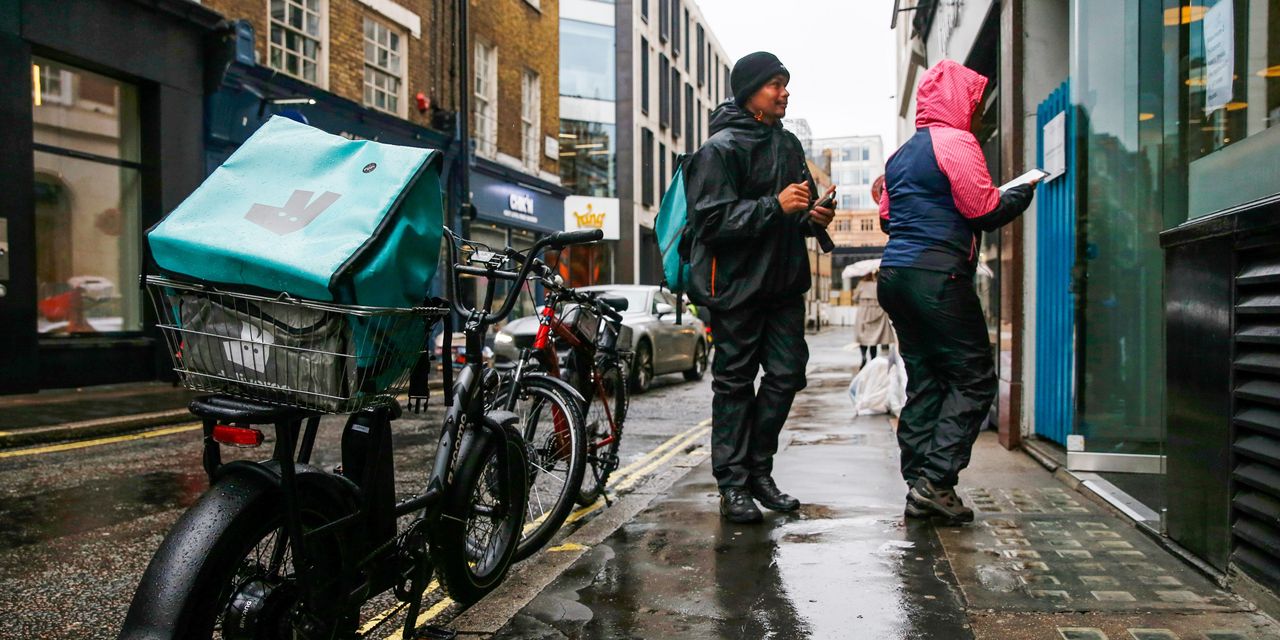
Deliveroo PLC, a food-delivery company based in the U.K. and backed by Amazon.com Inc., plans to open its own pizza parlor in London in an effort to better understand restaurateurs.
The drawbacks to the delivery experience have become familiar: Helmet-clad drivers and cyclists form knots at restaurants as they wait to pick up orders, doors bang open and closed as they come and go, and kitchen staff scramble to keep up with parallel streams of orders from on-site diners and those at home.
“We want to understand restaurants’ pain points with the aim of solving them, and to do this by having a deep understanding of restaurant owners’ mind-set,” a Deliveroo spokesperson said, adding that the company has no plans to build a restaurant business beyond one site in London’s Swiss Cottage neighborhood.
The restaurant will be called Pizza Paradiso, according to a licensing application filed to London’s Camden Council. According to floor plans seen by The Wall Street Journal, the site will comprise outdoor and indoor seating, a front-of-house pizza oven, a back-of-house kitchen and an interior waiting bench.
The idea is for Deliveroo staff to learn how to manage a restaurant that offers dine-in and delivery, working out how best to balance the needs of both types of diners at peak times, the company said.
Deliveroo has experience running food-service operations. The company in 2016 began opening Deliveroo Editions, locations known as “dark kitchens” or “ghost kitchens,” where multiple restaurant brands operate kitchens exclusively for delivery in one central space. It now operates nearly 300 such kitchens globally, in markets including the U.K., United Arab Emirates, France and Hong Kong.
But owning and operating a restaurant for eat-in customers is a novel concept for a technology business, said Trish Caddy, a senior food-service analyst at London-based market-research company Mintel Group Ltd. and a former restaurant chef and manager.
If Deliveroo uses its Swiss Cottage location to draw up a replicable operational blueprint for other eateries, it might be able to attract more restaurateurs into its network, she said.
“It could be people who say, ‘We’ve been running a mom-and-pop restaurant for forever, but we don’t know how to adapt to accommodate this new world of home delivery, takeout and click-and-collect,’ ” Ms. Caddy said.
Deliveroo’s move comes as San Francisco-based DoorDash Inc. is reinstating a program, suspended earlier in the pandemic, that asks every employee to carry out a delivery shift or shadow a customer-service agent once a month to better understand how their service works.
Food-delivery companies can easily become disconnected from the restaurateurs and delivery people who power their platforms, said Nabeel Alamgir, who in 2019 founded Lunchbox Technologies Inc., a startup that allows restaurants to build ordering experiences on their own websites and apps. Earlier, Mr. Alamgir was chief marketing officer of Bareburger Group LLC after starting out as a busboy at the company’s first location.
“I can feel the distance, in losing touch with what is the challenge of being a restaurateur, just a tiny bit, and I’m just three years out,” he said. “So I’m always in the restaurants.”
Gaining more empathy for customers might help delivery companies find a competitive edge in a crowded sector that has struggled to find a path to profitability, Mr. Alamgir said.
Deliveroo reported a pretax loss of £104.8 million for the first half of 2021, compared with a year-earlier loss of £128.4 million.
Shares in Deliveroo fell 26% on their first day of trading on the London Stock Exchange last March, as investors worried whether the company could maintain the momentum driven by high volumes of customer orders made during European pandemic lockdowns. Deliveroo shares closed at £1.97 on Friday, down 49% from their IPO price of £3.90.
Transactions processed on Deliveroo’s platform during the third quarter of 2021 rose 54% to £1.59 billion, equivalent to $2.17 billion, from £1.04 billion in the year-earlier quarter.
The third quarter’s results marked a decline from the second quarter, when transactions totaled £1.74 billion. Deliveroo said the drop was typical for the season, but told investors the third quarter also brought particular challenges for its restaurant partners in many markets, as they contended with a full return of dine-in customers alongside sustained high demand for delivery, as well as supply-chain issues and labor shortages.
Write to Katie Deighton at [email protected]
Copyright ©2022 Dow Jones & Company, Inc. All Rights Reserved. 87990cbe856818d5eddac44c7b1cdeb8








